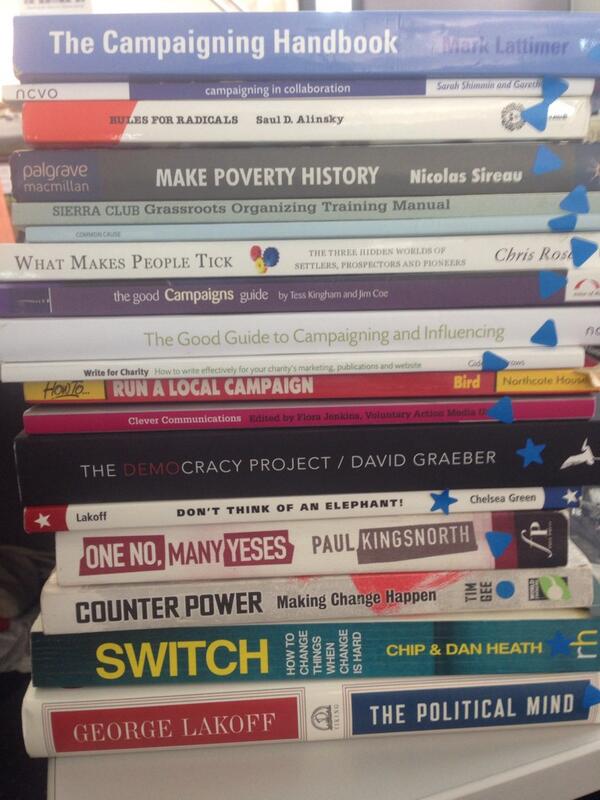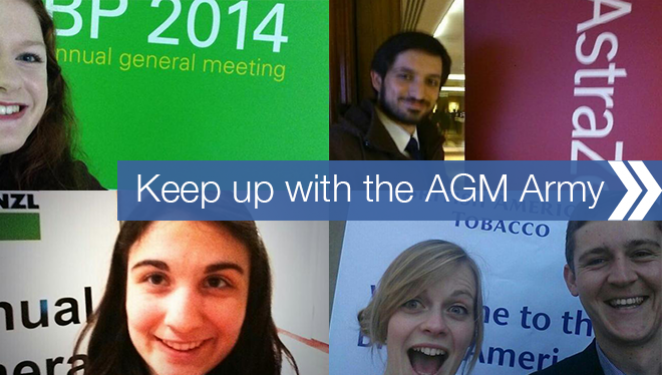Been challenging myself to ask more questions. Here are a few I think I should be asking more often.
1 – What does ‘success’ look like? A fundamental question to ask regularly. The answer should have both a specific and detailed response, as well as a reflection on what you want your campaign to achieve in the long term.
2 – What has the real influence here? Who can deliver the change we want? Its easy to focus on campaigning towards a target we feel comfortable with, or we’ve approached before. A through power analysis should be central to any campaigning we do, and from that an informed strategy. I’ve always thought that the right target is whomever can wake up tomorrow and deliver your campaign ask.
3 – What do you really need from us? A question any organisations with resources should ask to those within its movement, campaigns often succeed because of the variety of voices working on a issue. Sometimes that’s in formal coalitions, where resources are distributed in formal ways, but even in more informal coalitions, ensuring that others partners in your movement have what they need is essential. The answer isn’t always money, sometimes its political insight, sometimes its practical resources or access to technology.
4 – Do we really need to campaign here? This might sound like a counter intuitive question, but launching a campaign should be a tactic if other more ‘insider’ approaches aren’t going to work, rather than an initial response. Why? Campaigning comes at a cost, it’s resource intensive, and often the success we’re looking for can be delivered by a well placed ‘insider’ interventions.
5 – What would we do with twice the resource? All campaigns operate in a resource scarce environment, where their are trade offs to be made, asking this question is a great way of checking that you’re allocating the resources that you do have the most efficient and effective way. If you’d do more on one thing that you’re already doing, then perhaps you should look to redistribute the resources you already have.
6 – What are we learning? What would you do differently next time? Finding time to evaluate in the midst of a campaign isn’t always easy, but by asking what you’d do differently helps to ensure future campaigns win. Planning times for quick evaluation should be at the heart of any campaign.
What questions would you add?
Category: lists
Campaigners #Shelfie – 6 books that should be on your reading list.
I’m often asked for suggestions of books campaigners should read. I could list hundreds, but here are 6 that I’ve found particularly useful in the last year. I’d love your suggestions and additions.
1 – The Power of Habit – you might be groaning under the weight of books available from authors like Malcolm Gladwell or Nate Silver. I’ve read far too many of them, but I found Charles Duhigg book is one of the most helpful. His book is full of insight about what makes us change our actions, and has a fantastic chapter on why Rosa Parks was successful and how movements start because of the social habits of friendship and grow because of the habits of a community. It’s also helpful if you’re trying to keep a new years resolution!
2 – Victory Lab – I’ve written before about why I think all campaigners should keep a close eye on what’s happening in the US to learn about approaches. Sasha Issenberg book is the best look at the data-drive approach that has been adopted across US politics. It’s a brilliant look at how the Obama campaigns and others have adopted microtargetting, testing and audience insight. Campaigners in the UK have much to learn on this and this book is a great introduction.
3 – A View from the Foothills – Campaigning is political, and its vital that every campaigner has a good idea of how politics work. To be honest, I’m sometimes time surprised about the level of political literacy that exists amongst some campaigners. if we want to win campaigns we need to know how the institutions we’re targeting operate. Chris Mullin’s diaries of his time as a MP and junior minister are one of the best reads out there, but you wouldn’t go wrong reading Alistair Campbell’s diaries either.
4 – Made to Stick – looking for ideas about how your communications can get traction, what the top brands do to ensure that you remember their adverts, then you need to read Chip and Dan Heath’s book. Its a practical, full of great illustrations and the principles will stick with you as you design your next campaign messaging.
5 – The World Is Not Ours to Save – this is a personal choice that I’ve found really helpful over the last year. Although its primarily written for faith-based activists, the premise of the book, that as activists and campaigners we need to recognise our limitations, and ensure we build in habits that allow us to rest and be refreshed is one I’ve found really helpful as I’ve been thinking about how I sustain a long-term career in campaigning. If you don’t find Tyler Wigg-Stephens book for you, perhaps try other authors who’ve written about spirituality and activism.
6 – How Organizations Develop Activists – A late entry into my list, but I adore this book. Hanhrie Han has done the legwork to work out why some grassroots groups succeed and others fail. I found myself changing from nodding in agreement to furiously scribbling down insight from Han’s study of two unnamed organisations in the US, for anyone who wants to think about how they can build a flourishing grassroots network . A good summary of why it works (or doesn’t) here and this by Jim Coe is a fantastic summary.
14 great reads for campaigners from 2014
Settle in with a cup of tea, here are 14 great reads (in a rough order of how much I enjoyed them) that I’ve shared during 2014 that a worth a read.
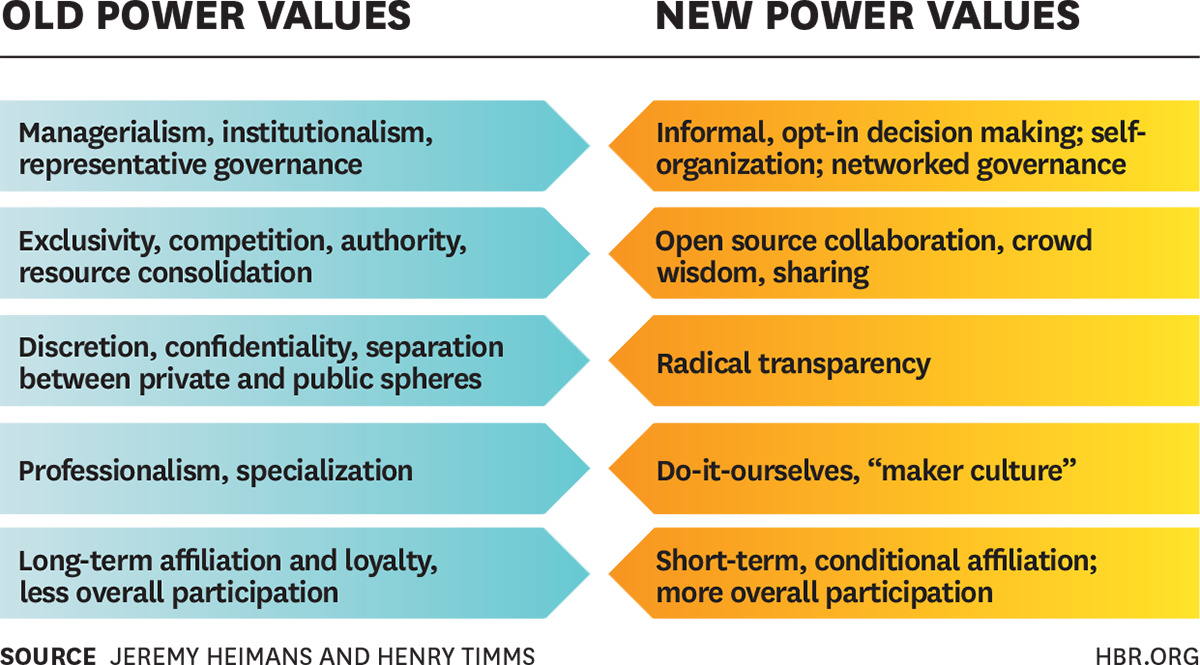
1. Understanding New Power – brilliant from Jeremy Heimans and Henry Timms on how the world is changing. A must read (great summary in the graphic above).
2. Changing Trends: New Power, Neuro-Campaigning and Leaderless Movements – just love this paper on key campaigning trends from Hannah and Ben.
3. Purpose Driven Campaigning – 40 key principles for growing social movements drawn from Purpose Driven Church.
4. When the pillars fall — How social movements can win more victories like same-sex marriage – brilliant look at how same-sex marriage advocates in the US build a movement to win.
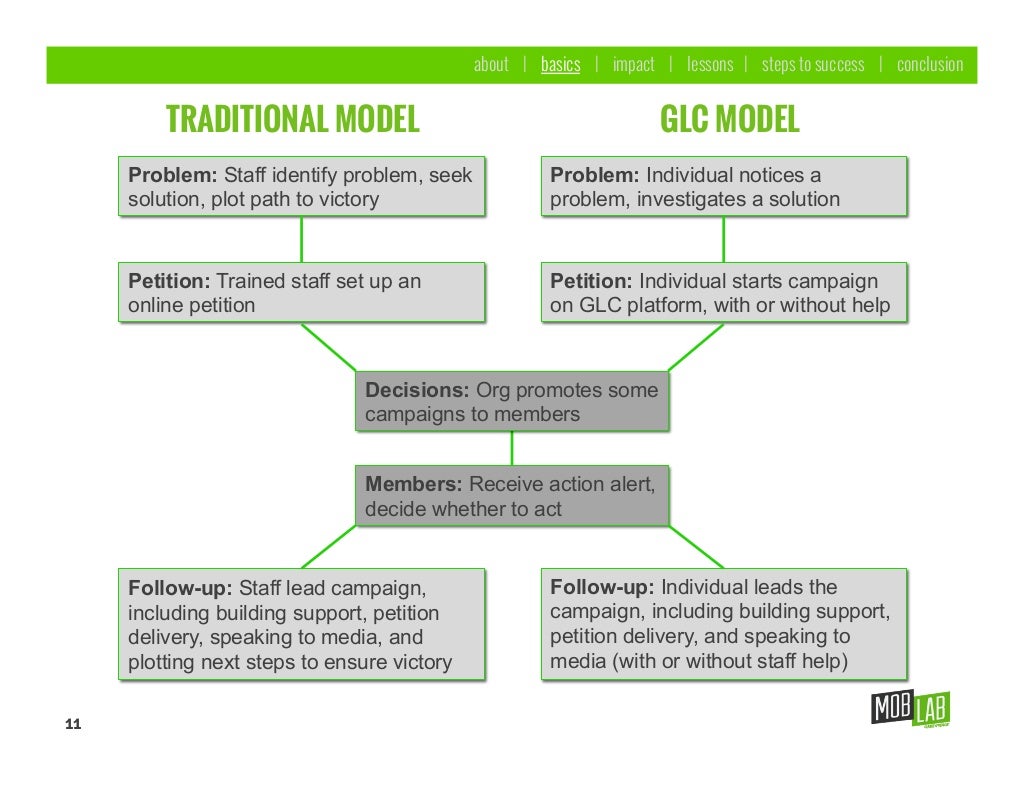
5. Grassroots-led Campaigns: Lessons from the new frontier of people-powered campaigning – brilliant MobLab report full of wisdom and insight of the people at the cutting edge of grassroots-led campaigns (GLC model in the graphic above). Basically anything MobLab writes is brilliant.
6. From fired up to burnout: 7 tips to help you sustain a life committed to social justice – offered without comment.
7. 6 things today’s breakout campaigns get right – great insight from the always brilliant Jason Mogus
8. “More of an art than a science”: Challenges and solutions in monitoring and evaluating advocacy – also enjoyed this by Jim Coe.
9. Stonewall’s secrets of successful charity lobbying – top tips from one of the best (also learning from Greenpeace here).
10. From Petitions to Decisions – how change.org is continuing to innovate.

11. Inside the Cave – a look at the digital and technology behind the Obama 2012 campaign (and here is more on how the campaign used twitter)
12. The Art of Coalition Campaigning – brilliant set of reflections from Ben Niblett.
13. 14 lessons from the Scottish referendum – useful reflections from the UK political event of the year (more here)
14. Rage Against the Machine – Lessons from Guzzardi–Berrios Race – how a 26-year-old former journalist organised to get elected in Chicago. Great lessons about working with the grassroots (and here on how to lose your seat when your a high-profile US politician).
Winning in 2014 – 7 great campaigns from the last year
Owen Jones is spot on, 2014 is the year that grassroots campaigns like E15 Mums have taken on the powerful and won, but here are a few of the other campaigns that have impressed me in last 12 months.
1 – AGM Army – Share Action – this small team are building an army of shareholder activists who are become the scourge of corporates, with their AGM Army turning up at annual meetings across the year, calling on Tesco to commit to a Living Wage to asking Greggs about animal welfare, I love how they’re taking a campaigning approach that has existed for year, and with digital tools and good old fashioned training helping to show that the simple act of owning a share gives huge influence. This article is a great summary of what they’re doing.
2 – Towns Against Tax Dodging – Action Aid – I’ve had a long-held admiration from the innovative and creative approach that the team at Action Aid take, from tax to biofuels, I get excited when their latest mailing arrives on my doormat, I love their smart campaigning thinking about new targets and approaches, rather than simply focusing on the traditional trinity of MPs, Whitehall and the UN. The recently launched Towns Against Tax Dodging is a brilliant way example of this.

3 – Rainbow Laces – Stonewall – Off the back of a huge victory on Gay Marriage last year, you might have expected them to take some time to reflect on what’s next (although if you know any of the team you’d have known that was unlikely to be the case, instead they come back with innovative new campaigning , like Rainbow Laces, focusing on kicking homophobia out of football, partnering with Paddy Power to send laces to every Premiership team. The ability to bring the voices of well known brands into their campaigning is seriously impressive.
4 – Unmute – Which – I’m continually impressed by the tone and approach of the campaigns from an organisation focused on being a consumer champion. They mix it up with a range of approaches, for example with the Unmute campaign which mobilised 50,000 to unlock a exclusive track from George The Poet, unlike many organisation that has been campaigning for years, they seem to have been able to adapt their approach to mirror the membership and consultation approach that has been pioneered by digital platforms.
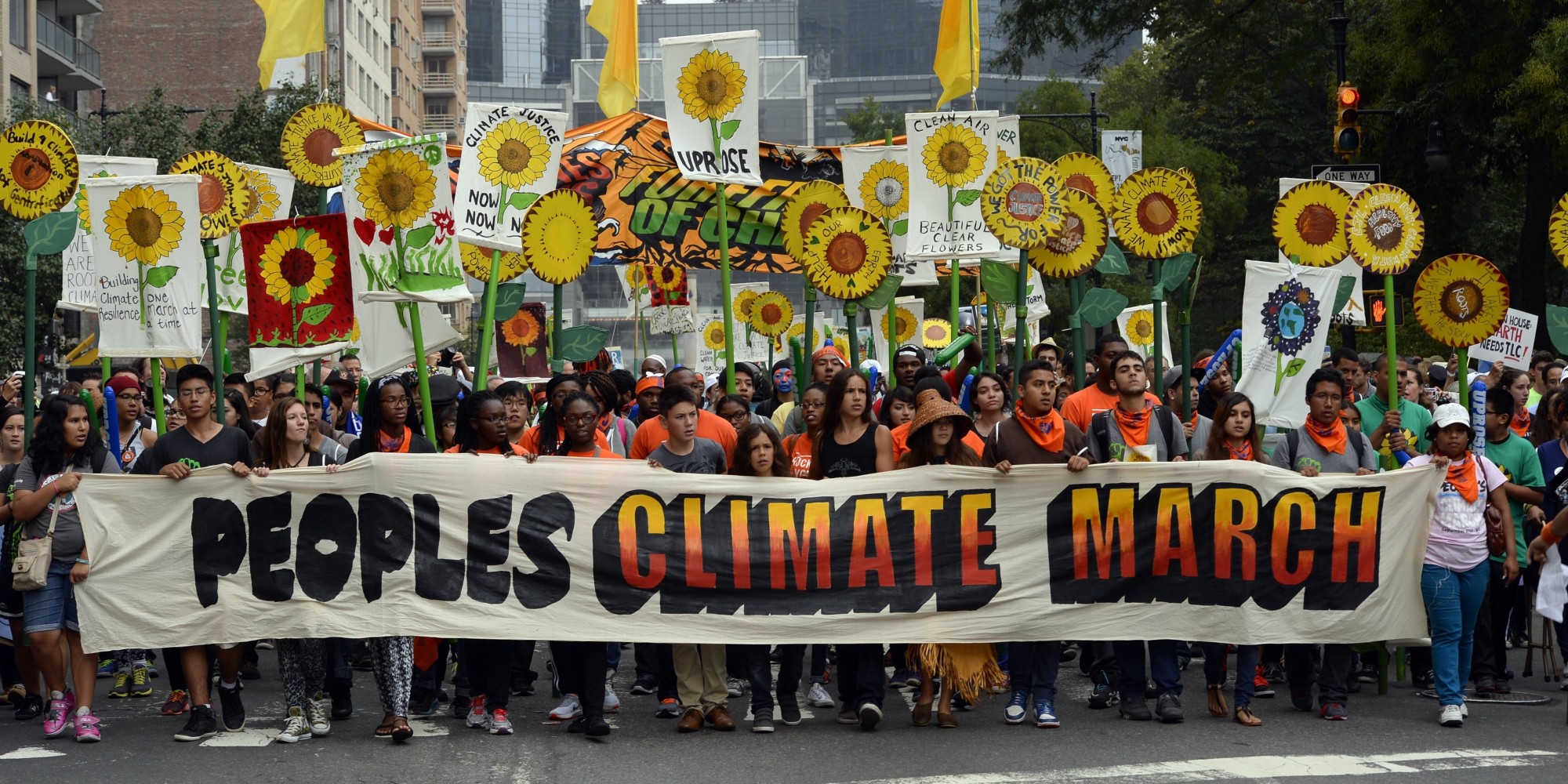
5 – People’s Climate March – 350.org – one of the organisations behind the People’s Climate Marches in September which seem to have reenergised the climate movement. I’ve been a long time fan of the approach which seeks to blend the best of community organising and digital activism across so many countries.
6 – Stop TTIP – 38 Degrees – perhaps a predictable choice, but I’ve been seriously inspired by the way that they’re building an organisational model that takes the best of their digital platform and allows them to mobilises offline as well as quickly online. Getting 10,000 people out in September to campaign on TTIP is just the latest example of this approach, it’s easy to be critical of ‘clicktivism’ but they’re showing that the approach can be used to do so much more.
7 – Space for Cycling – London Cycling Campaign – who used local elections in London back in May to target candidates with ultra-local campaign asks sourced from their supporters for each of London’s 629 election wards, an impressive achievement combined with a brilliant website, helping to ensure their asks got traction with candidates across the capital.

